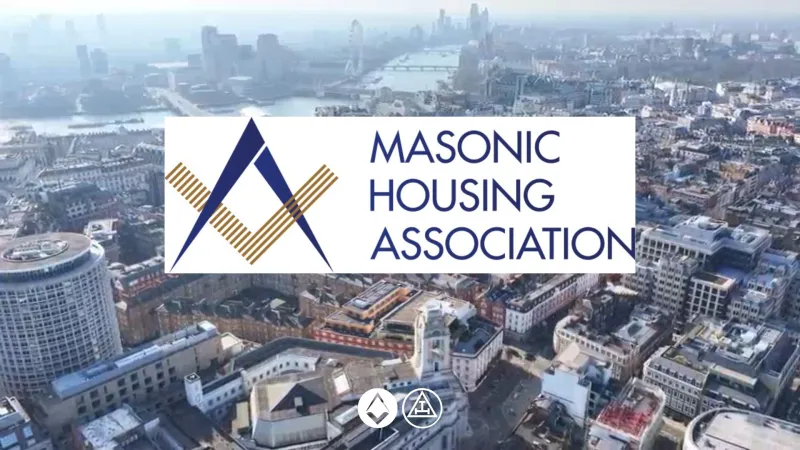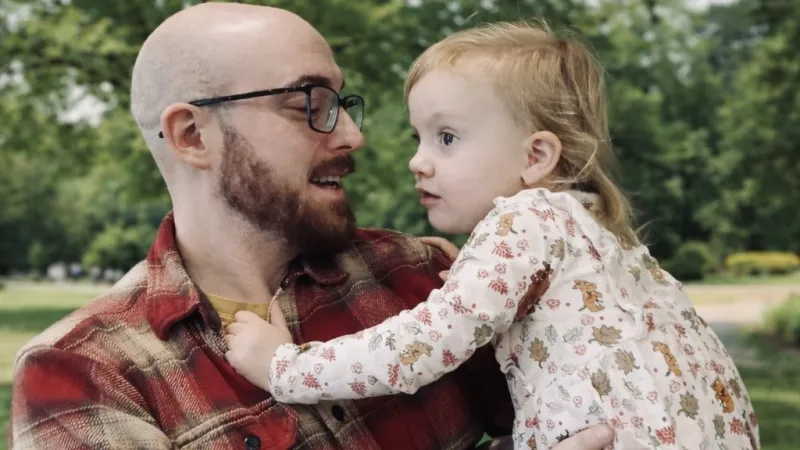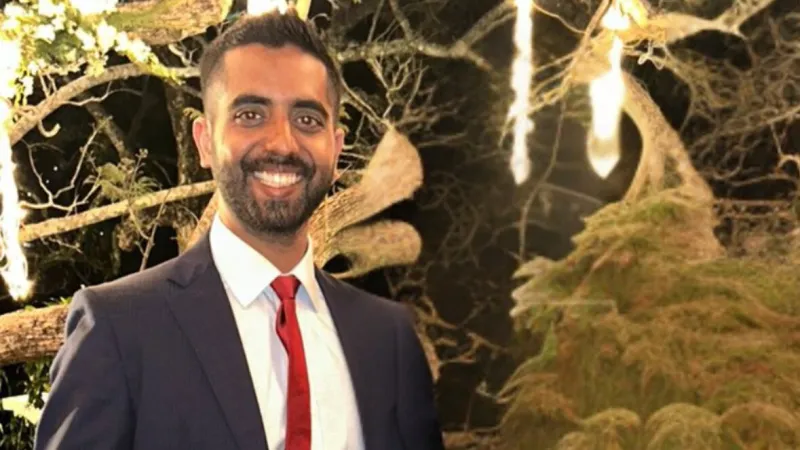As incoming Assistant Grand Masters David Medlock and Steven Varley join the team guiding UGLE governance, they talk about their determination to help Freemasonry thrive.
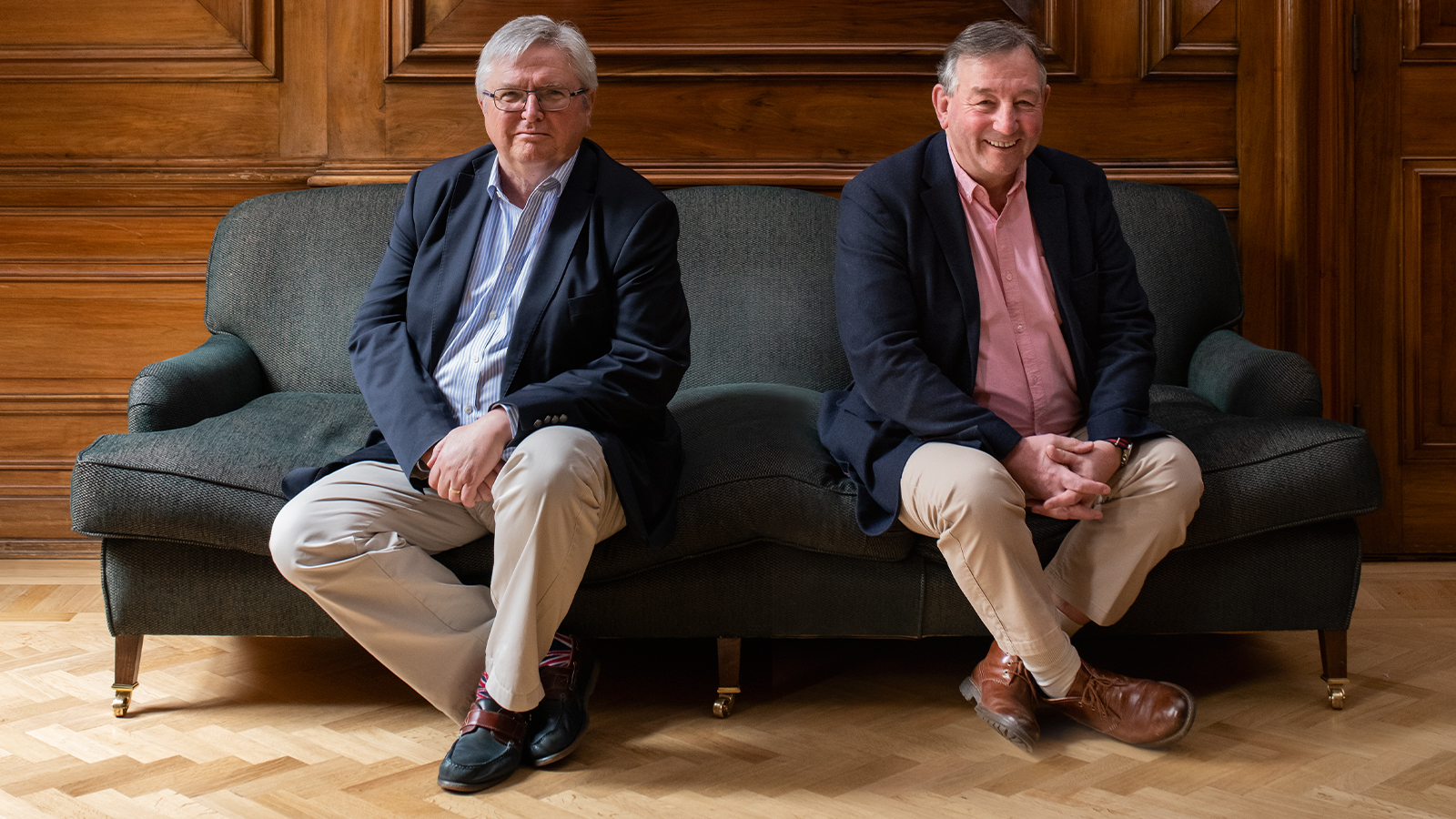
A Study in Contrasts
Steven Varley and David Medlock sit next to each other in a wood-panelled office at Great Queen Street. The two incoming Assistant Grand Masters – the first men to share the role for almost 100 years – aren’t quite a study in contrasts, but when sitting together their differences are noticeable. Where David sits back in his chair and is voluble and discursive in his answers, Steven leans forward, speaking quietly and with precision. These stylistic differences make it all the more compelling when the two speak with one voice about their determination to make Freemasonry enjoyable as part of the UGLE’s new seven-year strategy, which focuses on the importance of building a thriving membership.
‘It isn’t a difficult message we are putting out,’
says David.
‘Freemasonry is supposed to be enjoyable. How you do it is very much up to the individual Lodge,’
Steven concurs.
‘There’s a debate as to whether it’s fun, or happiness, or enjoyment, but all parts of it can be fun,’
Steven continues.
‘You can enjoy and have fun in meetings while doing it properly. The modern Freemason has too many other things to do – if he’s not enjoying himself, he’s not going to stick around.’
David and Steven have other things in common. Both were initiated into Freemasonry by their fathers as young men, thereby following a family tradition. While David pursued a career in engineering in the southwest, Steven went into law in the East Midlands. Both advanced through the offices in their Provinces and come to Great Queen Street as outgoing Provincial Grand Masters – Steven in Derbyshire, where he served just short of eight years, and David in Somerset, where he had been in the post since 2019.
This experience in the Provinces led to them both receiving a call from incoming Pro Grand Master Jonathan Spence in Spring 2022, inviting them to take the AGM role. Jonathan has already talked about the importance of communication with the Provinces, and David and Steven both arrive with recent knowledge of these challenges and opportunities.
‘In Provincial Freemasonry, you either engage with your community or die,’
says David.
‘It’s important. I feel we have both been appointed as we speak the same language as the Provinces, having recently been Provincial GMs. When I got the role, there was a sense of relief from other Provincial Grand Masters that a voice was being heard that understood their day-to-day problems. It can be quite a lonely job; they often think similarly, they just need some reassurance and encouragement.’
‘When I started the job of Provincial Grand Master it changed almost straight away,’
says Steven.
‘Instead of being head of a fiefdom, there was a move to a more corporate way of doing things, rather like being an area director of a large company. We went out to talk to people. And that works. When you talk to people, they get to know you, they are more willing to do things for you
and the Province starts to buzz.’
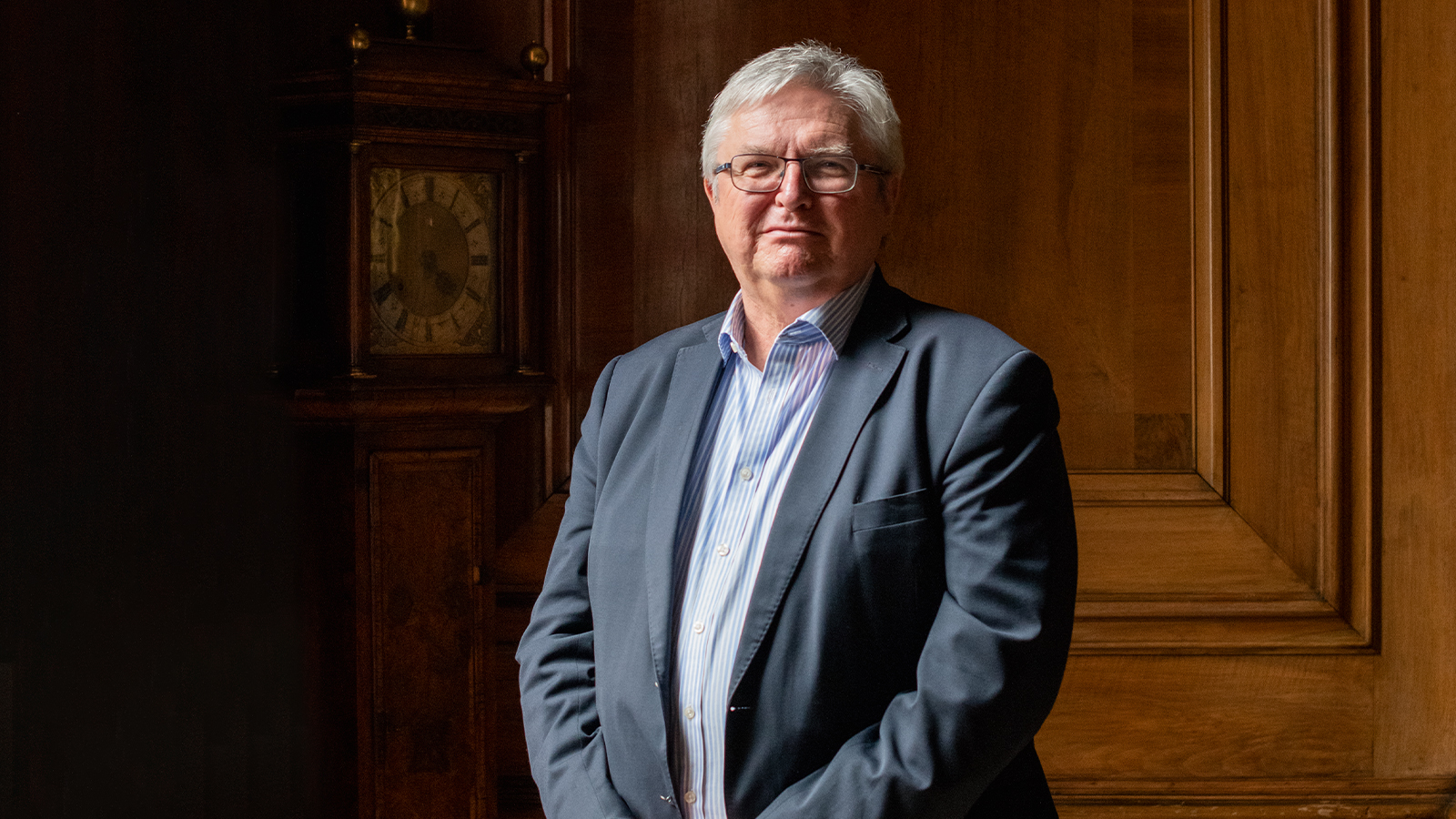
Consolidating Membership and Communications
As AGMs, Steven and David will be part of the senior team guiding UGLE governance and attending Quarterly Communications four times a year. Each has responsibility for two Regional Communication Groups, where they can speak to the Provinces directly and feed any concerns or insights directly back to the Rulers.
Additionally, Steven will be chairing the new Membership and Communications Working Party.
‘This consolidates the Membership Working Party and the Communications and Marketing Working Party into one body,’
he says.
‘This was about looking for ways to improve how we brought people in and then kept them in. We looked at all sorts of different things in Freemasonry and it has been brought together with communications to create a more seamless operation. It will be an interesting voyage. Jonathan is the driving force and he wants to see it succeed. Ultimately, success or failure will be seen both by continually increasing numbers and people enjoying their Freemasonry. If you enjoy Freemasonry, you will bring people into it with you.’
Both make it clear this isn’t solely a numbers game – it’s also about increasing the profile of Freemasonry in the community and ensuring that existing Freemasons are enjoying their experience.
They talk with pride of the role their Provinces played during the pandemic, finding ways to support friends and neighbours – an example of what Freemasonry can bring to the community and an important part of what makes it enjoyable and attractive to new members.
‘It’s that sense of pride, the good feeling that comes from putting something back into your community and doing that in the company of people you call friends,’
says Steven.
‘You can have a terrible day at work, go to a meeting and forget about your troubles.’ terrible day at work, ‘That is why we need to be careful about messaging because it’s not about pure numbers,’
says David.
‘I’d rather have fewer Lodges if they are all happy and buoyant. There’s no point in having too many candidates if there’s nothing for them to get involved with. Sometimes, we need to manage the enthusiasm and that can only be done on a Provincial level.’
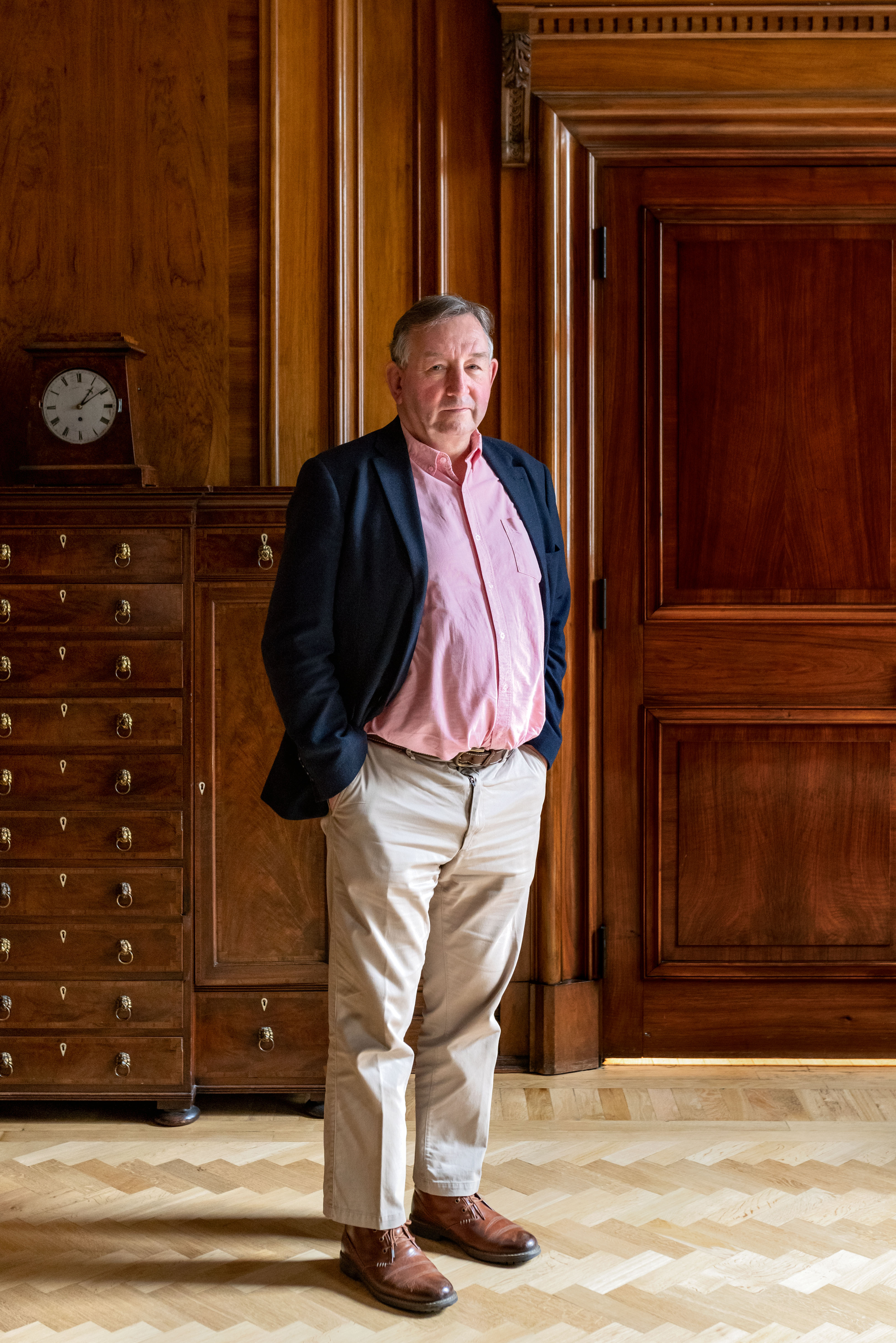
The Freedom To Make Mistakes
David and Steven aren’t concerned about how they will work together to achieve their aims, as both believe in adopting a management style that encourages people to make their own decisions.
Even if these turn out to be mistakes – as David experienced at the beginning of his Freemason career when, as a young Senior Steward, he made the momentous decision to change the dining plan.
‘It was a complete disaster,’
he says.
‘So, we just changed it back. We are giving people permission to fail. Jonathan is saying don’t say you are struggling if you haven’t tried anything.’
Steven continues:
‘In the old days it was, “no you can’t do that because”. But Jonathan is being more positive. Now it’s “yes, if”, not “no because”,’
he says.
‘With us, he’s talking to the converted. But there are many people out there who say you can’t do that,’
says David.
‘People need to lose their fear of change. Like with that dining plan, you can aways go back to the old layout if people don’t like it. We are unchaining our Freemasons. That is our message. We aren’t here to tell you how to run your Lodges, we are here to support you where we can.’
